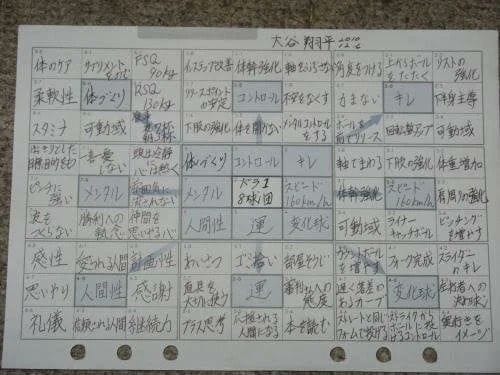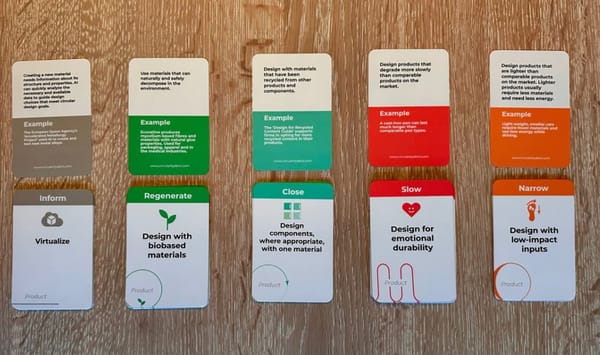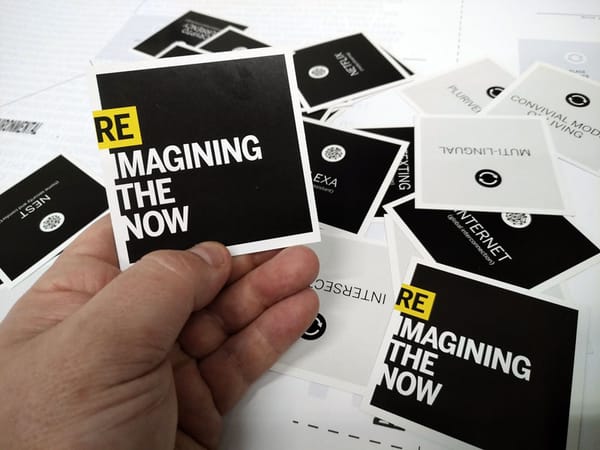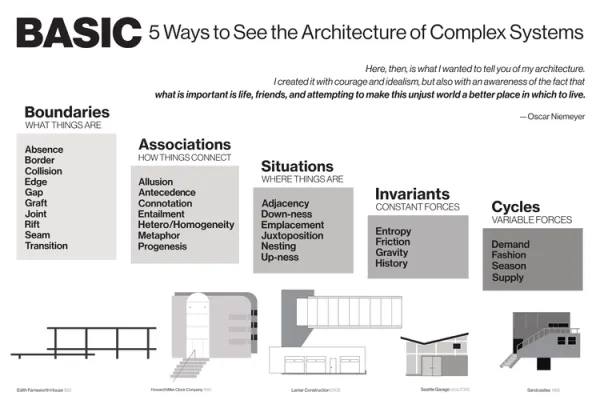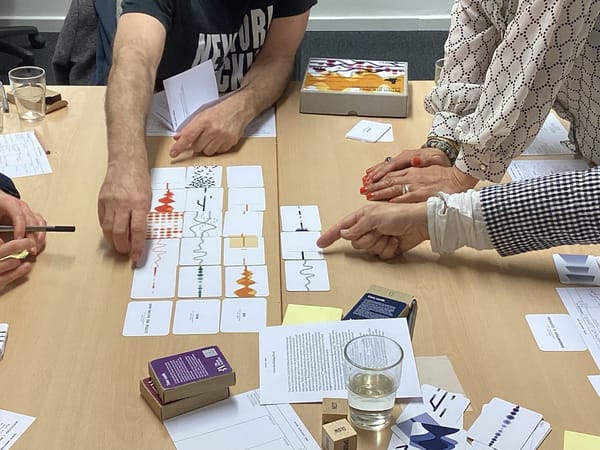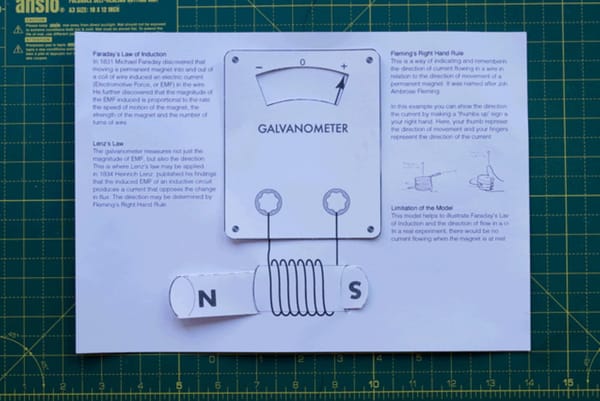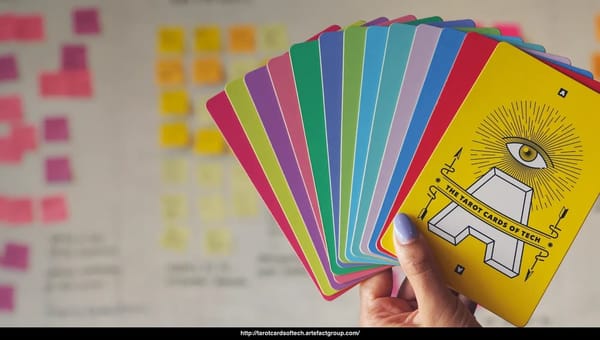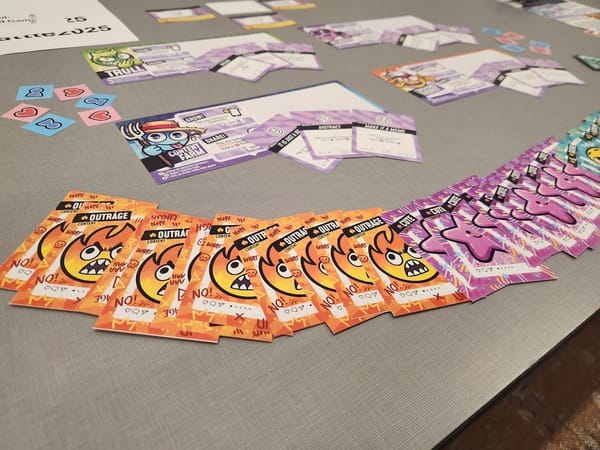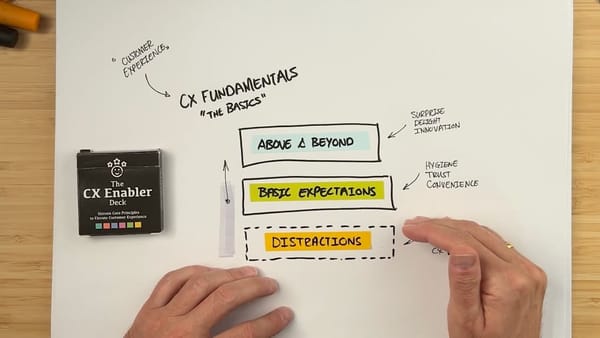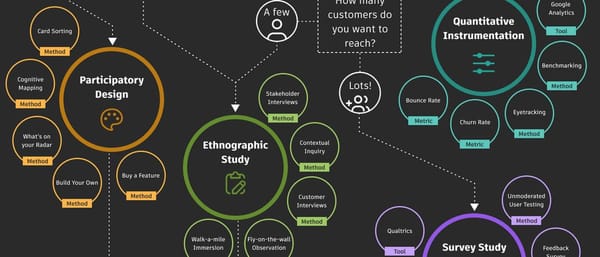
№ 112 | Teaching One Pagers, Sliderule Simulator, Board Game Icons, “Making, Hacking and Jamming”, FLARE, Relooted, Choosing a UX Research Method, and Deep Musings on our Human Relationship with AI
Welcome to another edition of the Thinking Things newsletter, your regular dose of playful things to think with, and think about. 🫵A couple of things: 1/ ♥️ ♠️ ♦️ ♣️ I’m exploring a special edition of thinking things focused on… 🥁 playing cards. Specifically, any activity that uses a standard deck of playing cards



